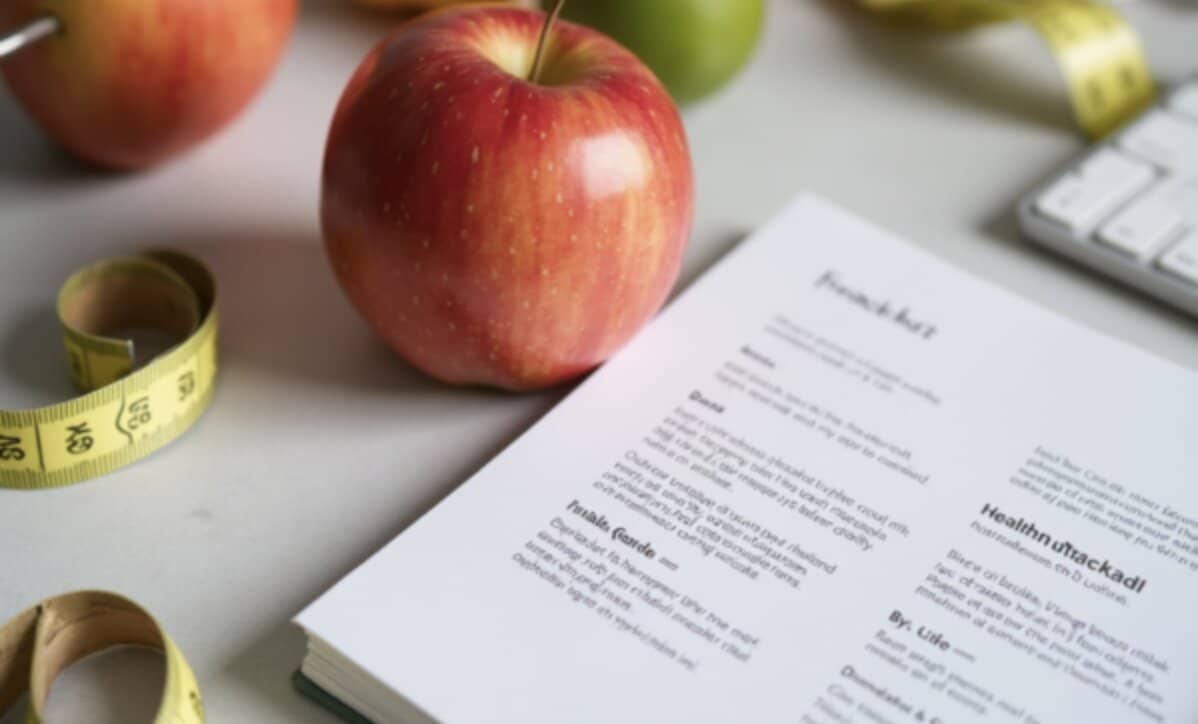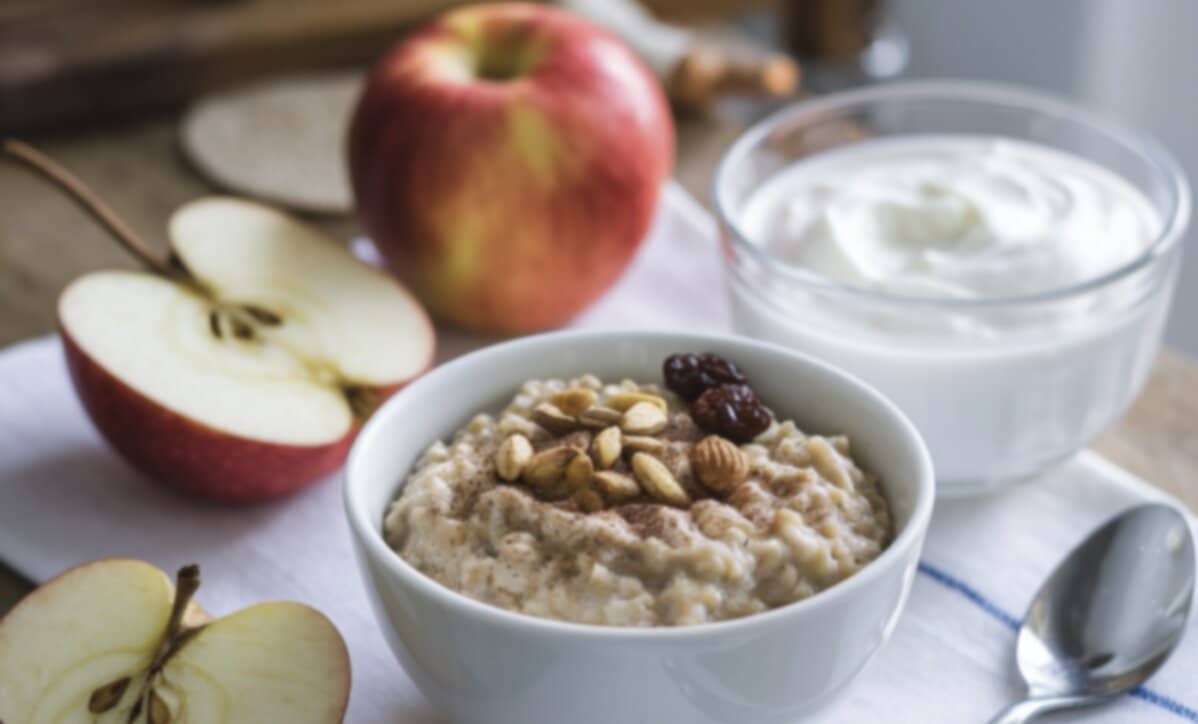Is It Healthy to Eat an Apple for Breakfast?
A few months ago, I started my day with a crisp, juicy apple, simple, refreshing, and surprisingly filling with about 4 grams of fiber in just 95 calories. It felt like the easiest breakfast I’d ever chosen, which got me wondering, “Is it healthy to eat an apple for breakfast?”
I’d always been the type to grab something quick on my way out the door or search for a way to fuel my mornings with natural goodness, and apples seemed to fit the bill perfectly, but as I munched away, I started to question: could this one fruit really stand alone as my morning meal, or did it need a little backup to truly shine?
In this in-depth guide, I’ll share what I discovered as I dug into the science behind apples, their benefits for my health, the drawbacks I noticed, and the creative ways I’ve since turned them into a breakfast superstar. Let’s peel back the layers together and find out!
Table of Contents
Why Apples Are a Nutritional Goldmine

Apples have earned their reputation as a go-to healthy snack, and for good reason, they’re bursting with nutrients that can kickstart your day on the right foot. Here’s a closer look at what makes them so special and why they deserve a spot in your morning routine.
Fiber: Your Gut’s Best Friend
- Nutritional Value: A medium apple (about 182g) delivers 4.4 grams of dietary fiber, roughly 17% of the recommended daily intake, according to the USDA.
- Health Impact: This fiber comes largely from pectin, a soluble type that slows digestion, helping you feel full longer. Research published in Frontiers in Microbiology (2019) shows pectin acts as a prebiotic, nourishing beneficial gut bacteria that support digestion, immunity, and even mood regulation.
- Morning Bonus: Eating an apple first thing can gently wake up your digestive system, making it a natural remedy for sluggish mornings.
Antioxidants: A Shield for Your Cells
- Nutritional Value: Apples are rich in polyphenols and provide 14% of your daily vitamin C per fruit.
- Health Impact: These antioxidants combat free radicals, unstable molecules that damage cells and contribute to aging and disease. A study in Nutrition, Metabolism and Cardiovascular Disease found that regular apple consumption correlates with lower LDL (“bad”) cholesterol and reduced heart disease risk.
- Why It Matters: Starting your day with this protective boost sets a foundation for long-term wellness.
Low-Calorie Energy: Steady and Sustained
- Nutritional Value: With just 95 calories, apples are low in energy density yet high in natural sugars like fructose.
- Health Impact: Their glycemic index (GI) of 38 means they release energy slowly, avoiding the spikes and crashes you’d get from sugary pastries or cereals. This makes them an ideal choice for steady, crash-free energy to power your morning.
- Real-Life Perk: Unlike a heavy breakfast that leaves you sluggish, an apple keeps you light and alert.
Micronutrients: Small but Mighty
- Nutritional Value: Each apple offers magnesium (6mg), manganese (0.035mg), potassium (108mg), and trace amounts of B vitamins.
- Health Impact: These nutrients play roles in everything from muscle function to energy production, giving your body subtle but essential support as you start your day.
Can Apples Boost Your Metabolism in the Morning?

One of the biggest questions people have about apples is whether they can rev up your metabolism. The short answer? Not dramatically, but they do contribute in meaningful ways. Let’s break it down with science and practical insights.
Fiber and the Thermogenesis Effect
- How It Works: When you eat fiber-rich foods like apples, your body expends energy to digest them, a process called diet-induced thermogenesis (DIT). A 2020 study in the Journal of Nutrition notes that high-fiber diets can increase DIT by a small but measurable amount, burning an extra 10-20 calories per meal.
- Morning Advantage: Over weeks or months, this subtle boost can support calorie balance, especially if you’re watching your weight.
Mineral Support for Metabolic Health
- Key Players: Magnesium, manganese, and potassium in apples aid enzymes that drive metabolism, the process of turning food into energy.
- Evidence: Research from Eating Behaviors highlights how these minerals help regulate blood sugar and support cellular energy production. Potassium also reduces water retention, helping you feel less bloated after waking up.
- Takeaway: Apples won’t turbocharge your metabolism like a cup of coffee, but they lay a solid groundwork for efficiency.
Weight Loss and Appetite Control
- Study Insight: A 2018 Appetite study found that eating an apple before a meal reduced subsequent calorie intake by 15%( (about 200 calories less on average).
- Morning Application: An apple breakfast could curb mid-morning snack cravings, making it a strategic ally for weight management.
- Bonus: Their high water content (85%) adds hydration, another factor in keeping metabolism humming.
Potential Downsides of an Apple-Only Breakfast
As healthy as apples are, they’re not a flawless standalone meal. Here’s what to consider before making them your go-to morning bite:
Acidity and Stomach Sensitivity
- The Issue: Apples have a pH range of 3.3-4, which is mildly acidic. For some, eating one on an empty stomach can trigger discomfort, heartburn, or acid reflux.
- Who’s Affected: People with sensitive stomachs, GERD, or a history of ulcers might feel this more acutely.
- Fix: Pairing apples with a neutralizing food (like oats or yogurt) can buffer the acidity.
Missing Macronutrients
- The Gap: An apple offers just 0.3g of protein and 0.2g of fat; far below what’s needed for a balanced meal.
- Why It Matters: Without protein and healthy fats, you might feel hungry within an hour or two, as these nutrients slow digestion and stabilize energy.
- Risk: Over time, a low-protein breakfast could sap your energy or muscle maintenance.
Sugar Overload (If You Overdo It)
- The Concern: While apples have a low GI, eating multiple in one sitting , say, 2-3, could still raise blood sugar temporarily, especially without fat or protein to balance it.
- Who’s at Risk: Diabetics or those sensitive to sugar swings should monitor portions.
How to Build a Balanced Apple Breakfast

To unlock apples’ full potential as a healthy breakfast, pair them with complementary foods. Here’s how to create a meal that sustains you all morning:
Why Balance Is Key
- Science: Protein and fats slow gastric emptying, keeping blood sugar steady and hunger at bay. A 2021 Nutrientsstudy found balanced breakfasts improve focus and energy compared to carb-only meals.
- Goal: Aim for 10-15g protein, 5-10g fat, and 20-30g carbs; apples can be your carb star.
Perfect Pairings
- Apple + Almond Butter: 2 tbsp adds 7g protein and 16g healthy fats, plus a creamy texture.
- Apple + Greek Yogurt: ¾ cup delivers 15g protein and gut-friendly probiotics.
- Apple + Hard-Boiled Egg: One egg brings 6g protein and 5g fat for minimal prep.
- Apple + Oatmeal: ½ cup oats ups fiber to 8g total and adds slow-release carbs.
7 Creative Apple Breakfast Recipes
Ready to mix things up? These ideas turn apples into a delicious, nutrient-packed morning ritual:
- Apple Cinnamon Oatmeal Bowl
- Cook ½ cup rolled oats with water, stir in diced apple, cinnamon, and a tsp of maple syrup. Top with 1 tbsp chia seeds (20 minutes).
- Green Apple Detox Smoothie
- Blend 1 apple, a handful of spinach, 1 cup almond milk, 1 tbsp flaxseed, and a scoop of vanilla protein powder (5 minutes).
- Baked Apple Breakfast Cups
- Core an apple, stuff with oats and walnuts, bake at 375°F for 25 minutes, warm and cozy.
- Apple and Cheese Toast
- Spread 1 oz cream cheese on whole-grain toast, top with thin apple slices and a drizzle of honey (10 minutes).
- Spiced Apple Pancakes
- Grate an apple into whole-grain pancake batter, cook with a dash of nutmeg (15 minutes).
- Apple Breakfast Parfait
- Layer chopped apple with ½ cup yogurt and ¼ cup granola in a glass, crunchy and satisfying (5 minutes).
- Apple and Nut Butter Roll-Ups
- Spread 2 tbsp peanut butter on a whole-wheat tortilla, add apple slices, roll up, and slice (5 minutes).
Are Apples the Ultimate Healthy Breakfast?
So, is it healthy to eat an apple for breakfast? Absolutely, when done right. Apples bring fiber, antioxidants, and metabolism-friendly nutrients to the table, making them a stellar foundation for your morning. On their own, they’re a light, energizing option, but pairing them with protein and fats transforms them into a complete, satisfying meal. Whether you’re sipping an apple smoothie or savoring baked slices, this fruit offers endless possibilities. Try one of these ideas tomorrow and discover your perfect apple breakfast. What’s your favorite way to enjoy them? Share your thoughts below!
Frequently Asked Questions
Q: When’s the best time to eat an apple?
A: Mornings are great for energy and digestion, but apples work anytime you need a healthy boost.
Q: Is it okay to eat an apple on an empty stomach?
A: Yes, for most, but if acidity bothers you, pair it with something bland like toast or oats.
Q: Can apples help me lose weight?
A: Definitely! Their fiber and low calories promote fullness and reduce overeating.
Q: How many apples should I eat in a day?
A: One or two is perfect, more might mean too much sugar or fiber for some.
Q: Are apple seeds safe to eat?
A: They contain trace cyanide, but you’d need to chew dozens to feel effects still, best to avoid them.

